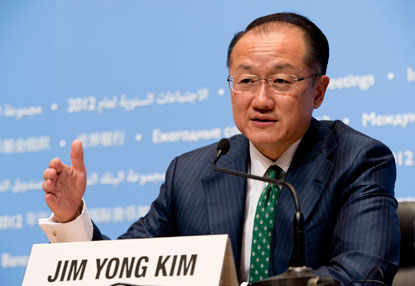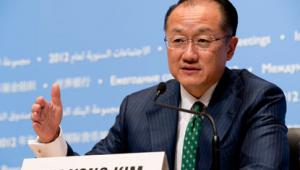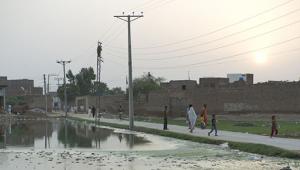Jim-Yong-Kim---FLICKR.jpg

Photo: Flickr
Speaking at the German Institute for Economic Research in Berlin yesterday, Kim said economic growth holds the key to tackling instability, terrorism and mass migration to greener pastures in an increasingly interconnected world.
“It has never been so painfully clear that the world is deeply interconnected,” he said. “Major issues that evolve in a developing country now swiftly move to affect developed countries – and vice versa.
“Climate change, pandemics, refugees, terrorism and economic downturns all move seamlessly around the world.”
Amid all this, he said the World Bank’s strategy remains largely the same: “support economic growth, invest in people and ensure that people don’t fall back into poverty”.
As well as political solutions, job creation, prosperous economies and opportunity was needed, especially in the most fragile and conflict-affected countries.
“All of Europe are rightly focused on the refugee crisis on the continent today, but if fragile states still have 47% of their people living on less than €2 a day by 2030, while the developed world prospers, the flow of migrants and refugees will not stop,” he warned.
But changes will have to be made to suit this new, connected world, he stressed. The bank itself will work to focus more effectively on managing risk and uncertainty, in terms of both climate change and scaling up support for innovative social protection programmes for those above or close to the poverty line.
It will also do more to combat pockets of poverty and rising inequality in countries at every income level, especially middle-income countries affected by fragility, such as Jordan.
But in a time when resources are particularly constrained, he urged developing countries to improve their business climate and the confidence of the private sector “which is where the overwhelming majority of job creation occurs”.
This can’t be a system where “only certain elites get access to capital and corrupt bureaucracies engage in outrageous rent-seeking”, Kim stressed. It must be one in which “capital, a license to do business and all other necessary inputs are distributed transparently and fairly to all citizens”.
Increasing developing countries’ tax collection will also be critical he said, estimating that this could boost domestic revenues by anything between 2% and 4% of GDP.
“If we reached just that 2%, that would be equal to roughly $450bn or three times current ODA [official overseas aid spending],” he highlighted.
“Boosting economic growth and creating jobs in fragile settings is an urgent task,” the World Bank chief continued. “In this rapidly changing world, the number of threats is growing and they are increasingly global. We cannot ignore them. We must act.”












